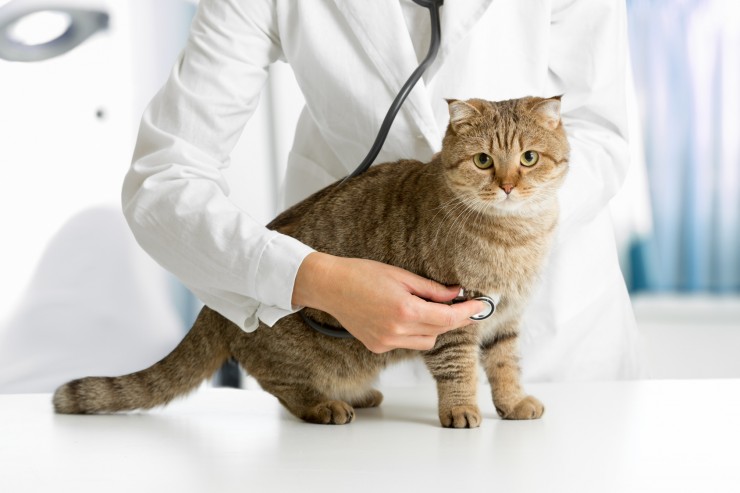
Dog health issues are somewhat universal, and solving these problems involves finding out what they are. When you know what type of medical problems to anticipate from your pet, you will be better prepared to handle them if they arrive. Using suitable preventative measures will mitigate the chance of disease contraction. Pet immunization is arguably the best method of prevention to avert particular diseases.
Avoid Three Pet medical Issues With Immunization
Rabies is a specially vicious disease caused by a virus that is typically transmitted through animal biting. We regularly think of bats when it comes to rabies, but all mammals are susceptible to the disease. The main way that hydrophobia does damage to animals is by attacking the central nervous system. It is necessary to inoculate for rabies because there is no remedy once signs of the disease appear.
Distemper, specifically canine distemper, is very nearly 100% avoidable with immunization. Symptoms that can be expected in a dog that has a bad response to the distemper virus are: coughing, vomiting, erratic deportment, head shaking, slobbering, and maybe seizures. If your dog is in good health to start with, it might react comfortably to the airborne distemper virus.
Another highly contagious viral disease, canine parvovirus, is not simple to get rid of once your dog has it. Your dog can contract the parvovirus by ingesting the feces of another infected dog. Parvovirus causes feverishness, emesis, diarrhea, dehydration, and perhaps death. Intravenous care, antibiotics, vomit and diarrhea control methods may be necessary to save your pet, which means intensive veterinary direction.
The bottom line here is that one would be much farther ahead to inoculate to prevent disease than to try to treat disease once contracted. There's no coming back from rabies, and rebounding from parvo or distemper can certainly leave your dog changed.
Parasites Within and Without
A parasite is any organism that requires another (host) organism to get its necessities from in order to thrive. Parasites can live in a dog's intestinal tract, and they can live on her skin. Internal parasites are typically tapeworms and roundworms. Parasites that live outside of your dog's body include, but are not limited to, fleas, mites, ticks, lice, flies, mosquitoes, and chiggers.
Internal
Your dog gets tapeworm as a result of the special kinship between tapeworms and fleas and lice that allows the flea and louse to be the carrier. It doesn't take much for a dog to consume a flea or a louse, so tapeworm transmission is pretty straight forward.
Eating the raw meat of infected animals such as rodents and rabbits can infect your dog. You will want to take a stool sample to your veterinarian to see if you have a tapeworm problem. In the feces, single segments are typically what you'll find. Medications can be had at dependable pet stores and can be used successfully with your vet's advice.
Ascarids, hookworms, and whipworms can be eaten when your dog eats poop or soil that contains worm eggs, while a fourth roundworm, the heartworm, is passed by the bite of a mosquito. Symptoms of a roundworm infestation vary from worm type to worm type, and typically include coughing, weakness, diarrhea, and vomiting.
Heartworm can cause serious harm to the circulatory system and to the lungs of your pet. Medicinal preventives will save a lot of grief and maybe the life of your dog. Dealing with any worm infestation can be problematic, so it is likely suitable to consult your veterinarian if you figure there might be a concern, particularly when dealing with heartworm.
As an illustration, if unheeded, ascarids can result in seizures. An out-of-control hookworm problem can result in the need of plasma transfusions and extended hospitalization for your dog. Due to their long life cycle, whipworms have to be treated on a strict time schedule.
Parasites On The Exterior
Little brown flat critters that rush for cover when you rub your dogs hair the wrong way are blood sucking fleas. They should be eliminated as soon as any are spotted because a modest population can explode in a matter of days. Fleas do not have to be on your dog to live as they can endure for months without sustenance, making them hard to get rid of.
To really get rid of fleas you must get them off of your dog and out of your household. There are a lot of products out there to attain this. Vacuum floors a lot, launder dog beds routinely, and search out tricky-to-get-to spots where fleas can lay in wait for months to get a stab at your pet.
Although mites are microscopic in size, these lightly colored burrowers can do a mighty amount of hurt to your dog, causing skin inflammation, mange, and ear problems. Most mite infestations can be eradicated with proper cleaning and insecticide utilization. Any sign of mange necessitates a trip to the veterinarian.
A blood sucking louse that dogs can get by actually contacting another host is linognathus piliferus setosus. They are accountable for biting and scratching of the skin, matted hair, and a coarse and dry haircoat. To fight lice make sure bedding is appropriately washed or throw it away, check with your vet for medications.
Ticks reside out-of-doors and get on your dog when she brushes up against undergrowth or rolls about in the leaves. Ticks carry a host of diseases and must be removed right away. To shrink the chance of tick transmitted diseases check your pet carefully after walking in woods or around dense leafage.
Once a tick is located it can be removed with a pair of tweezers by tightly grasping it near the head and pulling it away from the dogs body. Rub the affected vicinity with alcohol to avoid infection.
Normal visits to see your veterinarian are critical to your dog's well-being. Remember, your veterinarian has been trained extensively in animal care and will spot things that you will not, and can perform procedures that you plainly can not. There are numerous great books, and online education to help you discover more about your pet's medical care. Nearly every potential dog medical problem should be handled promptly and correctly by you and your vet.
For more information visit www.familypitbull.com
 10 Unique & Rare Breeds Of Horse
10 Unique & Rare
10 Unique & Rare Breeds Of Horse
10 Unique & Rare
 Five Universal Personality Traits Of The Golden Retriever
Five Universal Pe
Five Universal Personality Traits Of The Golden Retriever
Five Universal Pe
 Cats & World Records
Cats & World Reco
Cats & World Records
Cats & World Reco
 Some Important Information For Potential Buyers Of A Basset Hound
Some Important In
Some Important Information For Potential Buyers Of A Basset Hound
Some Important In
 Veterinary Malpractice - What You Can Do About It
Veterinary Malpra
Veterinary Malpractice - What You Can Do About It
Veterinary Malpra
Copyright © 2005-2016 Pet Information All Rights Reserved
Contact us: www162date@outlook.com